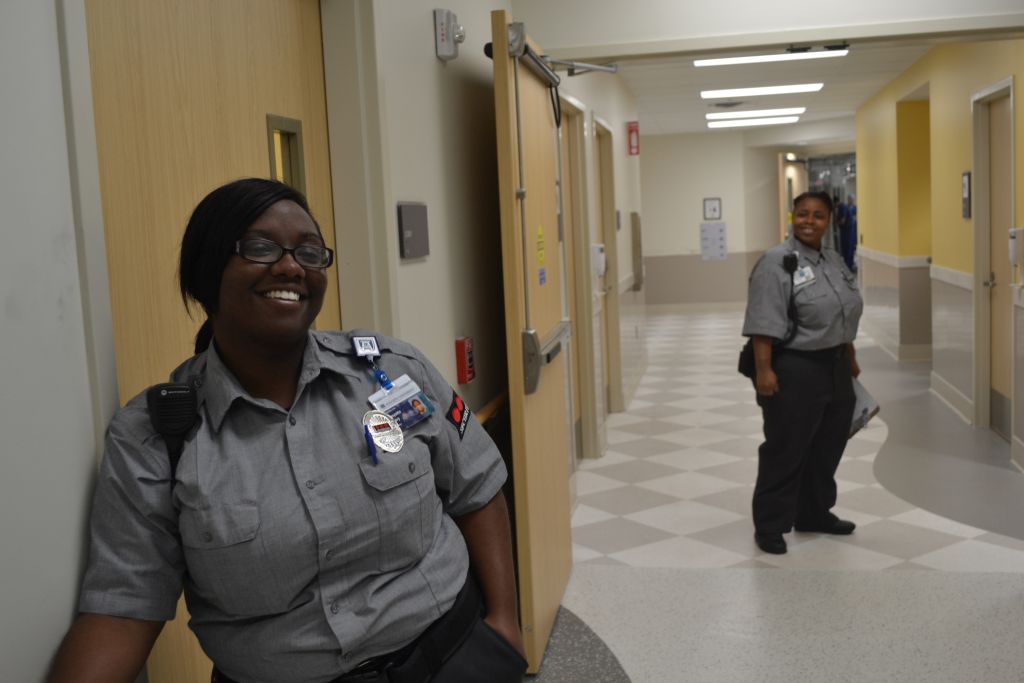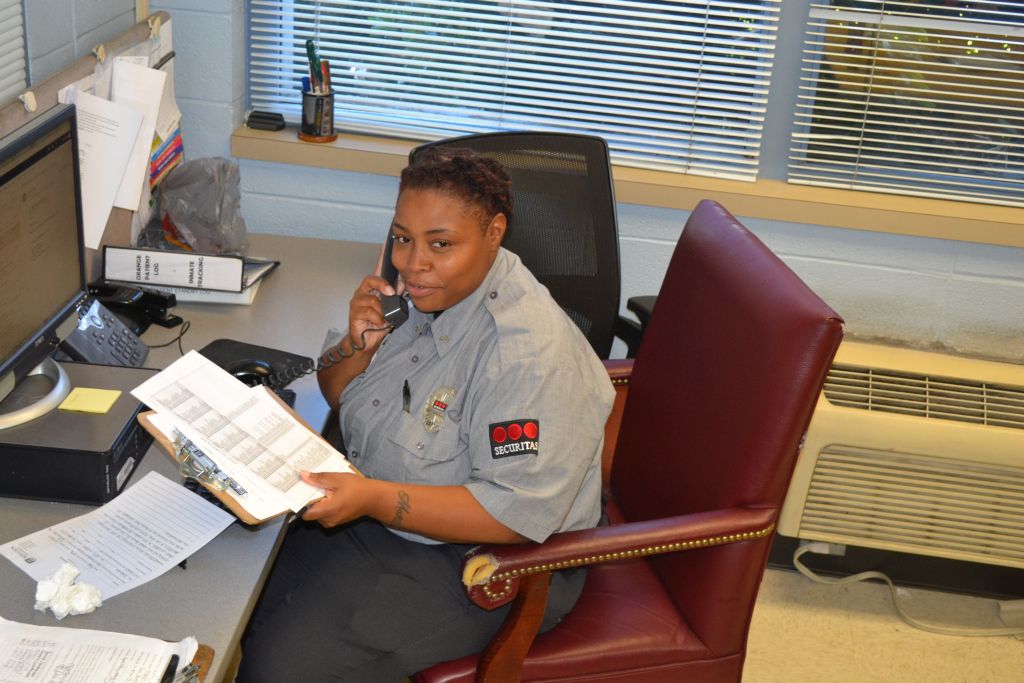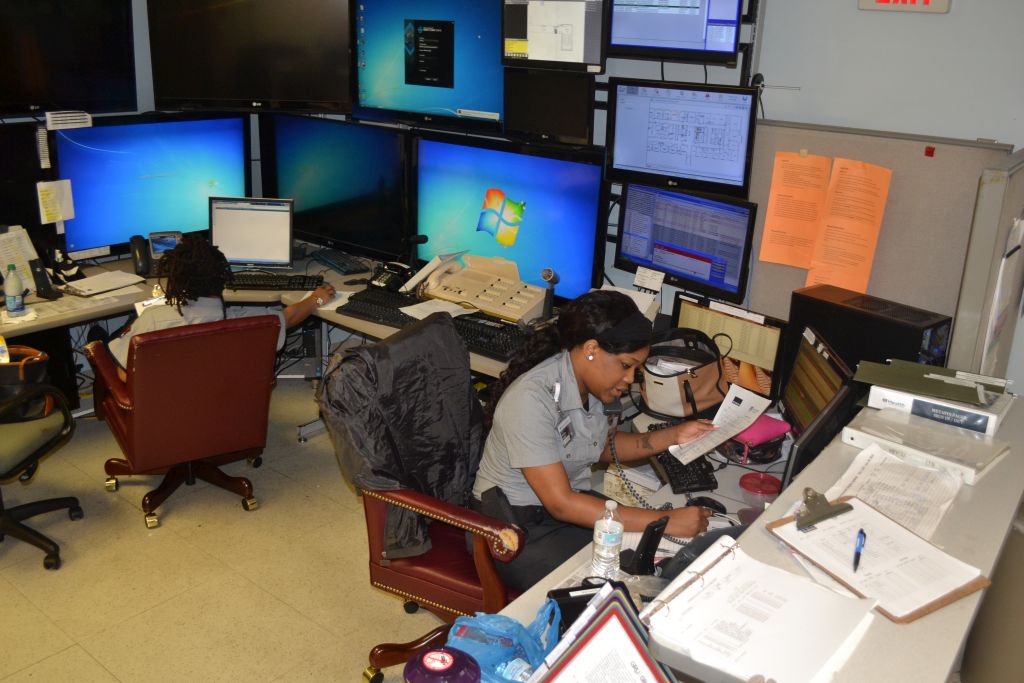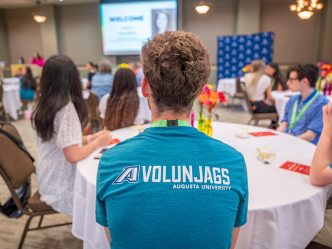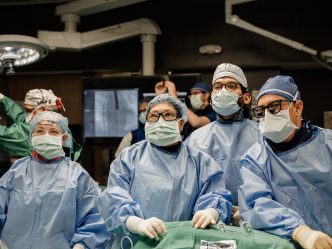Editor’s note: This is the second installment in a multiple-part series focusing on the work done by the Facilities Services Division.
Sgt. Nicole Davis had eaten maybe three bites of her lunch when the call came across her radio: “Code Strong,” dispatch reported.
All chatter stopped. The mood changed. Davis dropped her fork and jumped up from the table, lunch forgotten.
“We gotta go,” Davis told me, and promptly hustled out the door.
“Wait, what? Where are we going?” I asked, scrambling after her. I had been shadowing Davis for several hours and had not yet seen this type of frenzied activity.
It turns out, we were headed to the Emergency Department (ED). A patient was not cooperating well with the ambulance emergency technicians bringing her into the medical center. Her wrists had been restrained and she was talking and behaving erratically.
This was a Code Strong, meaning the patient was combative. In these cases, medical center safety and security officers respond quickly to ensure the patient does not harm him/herself or staff. Security officers efficiently collected the patient’s personal property, bagged it and labeled it. They made sure she safely changed out of her clothes into a hospital gown and was settled enough to be assessed by ED staff.
Then, an officer was posted outside the door to the patient’s room to keep an eye on the situation. This is a stand-by: The officer is on stand-by in case anything untoward happens.
Stand-bys are required not only for combative patients; they are required for “Oranges,” too. Oranges are inmates receiving care in the medical center. At all times they’re accompanied by a Georgia Department of Corrections officer and their room monitored by a security officer.
Securitas is the medical center’s safety and security contractor. Oct. 8-14 is National Healthcare Security and Safety Week.
The Code Strong call came in around noon. Davis and dispatch officer Chassidy Johnson told me that morning that not only would the number of calls spike around lunchtime, but the reason for the calls would intensify. They weren’t kidding.
“Around lunch time, I don’t know what it is, but that’s when everybody is like, calling,” Johnson said.
It seems clichéd to say that dispatch is the nerve center of the medical center, but it is. Dispatch officers have to manage alarm systems; security TV monitors; personal property intake, storage and outtake; and security and facilities phone calls, among other things.
“We’ve got phone calls coming in from the hospital. People calling about maintenance issues – it’s too hot, too cold, my bed doesn’t work – so we dispatch the facilities workers and let them know where to go and who called. Then we deal with security, of course, so we dispatch the officers,” Johnson said.
Dispatch receives 32,500 calls a month.
A big part of Davis’ day was walking the medical center and checking in with the officers on duty. Some were stand-bys, others were stationed at the medical center’s entrances. Every entrance is staffed with an officer 24/7. On every shift there is also a dedicated fire watch officer that monitors active construction areas on campus.
The best part of Davis’ job? “If I can make someone’s day better and leave them with a smile,” she said.
I logged 6,703 steps with Davis when I shadowed her. That’s approximately 3 ¼ miles. I was with her only about four hours.
On any given day, officers can give directions to patients and their families; write parking tickets and ticket those who smoke on the medical center’s tobacco-free campus; politely ask vagrants to leave the premises; stand-by with combative patients and inmates; and handle anything else that may come up.
“We’re kind of on edge, jumping back and forth between security and facilities so you never know what you’re going to get. The hardest part in a day, I would say, is keeping up with everything and getting it right. We always get those days where there are one hundred things at once,” Johnson said.
 Augusta University
Augusta University
